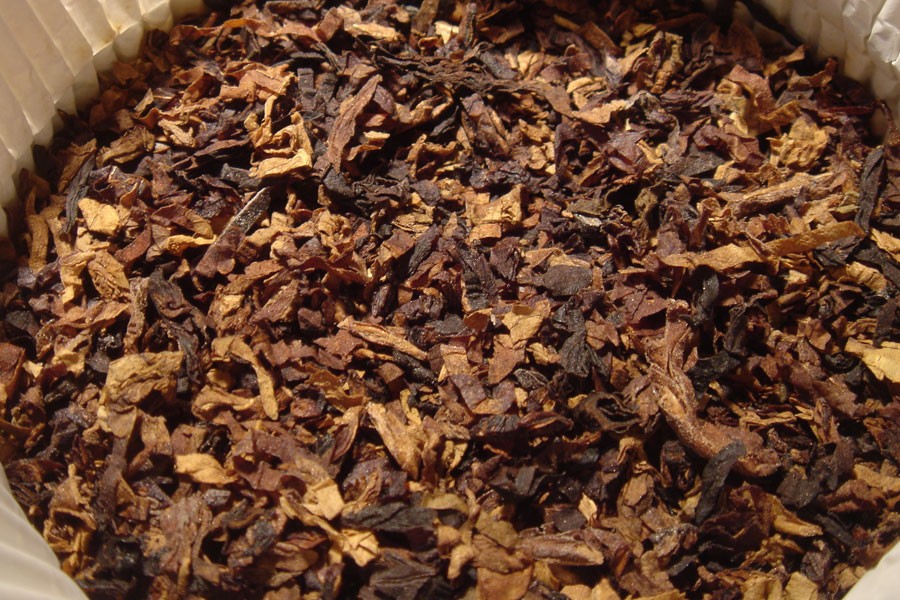Speakers have demanded effective tax measures in the upcoming budget leading to a rise in prices of all tobacco products.
It is necessary for safeguarding the youth, the poor and the women who are most prone to tobacco consumption, they have said.
They have also recommended introduction of a specific rate of Supplementary Duty (SD) on all tobacco products that should be regularly increased over time beyond the inflation rate and income growth to make sure the affordability of using tobacco products continues to decline.
The pre-budget press conference on 'The tobacco Tax We Demand" was held at the Dhaka Reporters Unity (DRU) premises on Saturday to put forward the recommendations for inclusion in the national budget for the upcoming fiscal year 2019-20.
The press conference was organised with support from the Campaign for Tobacco Free Kids (CTFK) at the initiative of the PROGGA and the Anti-Tobacco Media Alliance (ATMA) and in association with other anti-tobacco organisations.
The organisations include National Heart Foundation Bangladesh, Dhaka Ahsania Mission, Association for Community Development (ACD), Young Power in Social Action (YPSA), Bangladesh Institute of Theatre Arts (BITA), SUPRO and Tamak Birodhi Nari Jote (TABINAJ).
Economist Dr. Qazi Kholiquzzaman Ahmad, Chairman, Palli Karma Sahayak Foundation (PKSF), and Chairman, National Anti-Tobacco Platform, was the chief guest at the event.
Dr. Nazneen Ahmed, Senior Research Fellow, Bangladesh Institute of Development Studies (BIDS), was the special guest.
The proposals for inclusion in the upcoming budget were presented by Dr. Mahfuz Kabir, Research Director, Bangladesh Institute of International and Strategic Studies (BIISS).
Dr. Nasiruddin Ahmed, former Chairman of National Board of Revenue (NBR), was the main discussant at the programme.
Representatives from a number of anti-tobacco organisations were also present.
Former vice-chancellor of the University of Dhaka, Professor Dr. AAMS Arefin Siddique presided over the programme and Nadira Kiron, Chief Reporter of ATN Bangla and co-convener of ATMA, hosted the event.
Speaking at the programme, Dr. Qazi Kholiquzzaman Ahmad said NBR and other policymakers often agreed on overhaul of the tobacco tax system and expressed their solidarity with the anti-tobacco activists but it was not reflected in the reality.
Dr. Nazneen Ahmed said a psychological change among the users of tobacco could help end their addiction.
She also proposed that excluding tobacco users from Social Safety Net might also help protect the poor from tobacco use.
Dr. Nasiruddin Ahmed said, while dealing with tobacco taxation, the NBR needed to emphasise the protection of public health, not tax money.
The chair of the event, Dr. AAMS Arefin Siddique, said that apart from increasing the price of tobacco products, massive awareness campaigns also needed to be launched to protect the students from tobacco.
The press conference was also informed that more than 50 per cent tobacco users were taking smokeless tobacco products (SLT) while only 0.2 per cent of tobacco revenue comes from this SLT sector.
The pre-budget proposals include bringing the number of price slabs down to two (low and high) from four, elimination of price distinction between filter and non-filter bidis, elimination of tariff value system for smokeless tobacco and introduction of tax on retail prices.
If the proposals are adopted, it will encourage nearly 3.2 million current adult smokers (1.3 million cigarette smokers and 1.9 million bidi smokers) to quit the habit.
It will reduce the prevalence of cigarette smoking from 14 per cent to 12.5 per cent and the prevalence of bidi smoking from 5.0 per cent to 3.4 per cent. It will also reduce premature deaths by 1.0 million among current smokers in the long term and will generate between Tk 66.80 billion and Tk 119.80 billion (or 0.4 % of GDP) in additional tax revenue.


